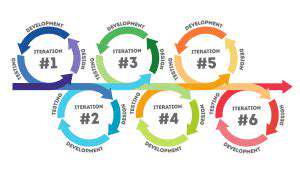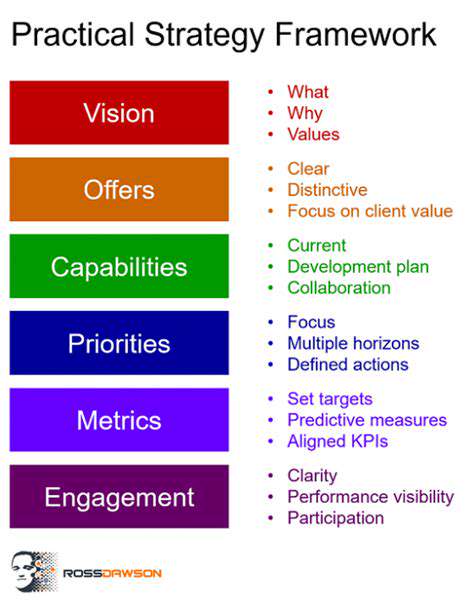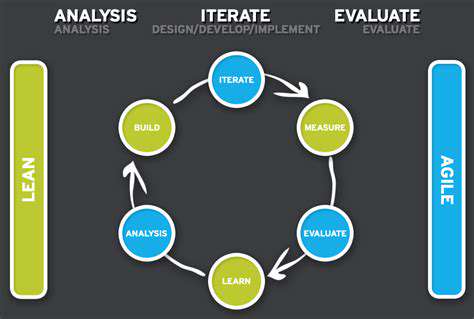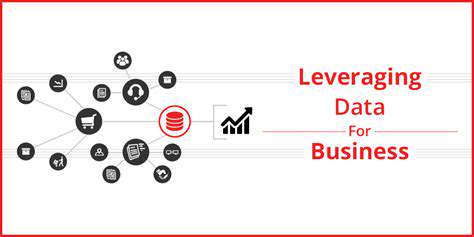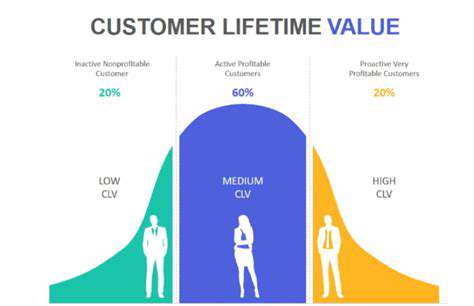The Future of Data Privacy Regulations
The Exponential Growth of Data
The rise of AI and data-driven technologies is intrinsically linked to the exponential growth of data. Every interaction, every click, every transaction generates a digital footprint, creating massive datasets that fuel AI algorithms. This explosion of information, while offering unprecedented opportunities, also presents significant challenges, particularly regarding the privacy implications of collecting, storing, and utilizing this data on an unprecedented scale. The sheer volume of data makes it increasingly difficult to control and manage responsibly.
Algorithmic Bias and Fairness Concerns
AI systems are trained on data, and if that data reflects existing societal biases, the AI will perpetuate and even amplify those biases. This can lead to unfair or discriminatory outcomes in areas like loan applications, hiring processes, and even criminal justice. Ensuring fairness and mitigating bias in AI algorithms is a crucial challenge that requires careful consideration of data sources, algorithm design, and ongoing monitoring.
Addressing algorithmic bias requires robust methods for identifying and mitigating biases within datasets and algorithms, including the development of metrics to evaluate fairness and the implementation of mechanisms for auditing and accountability. It also necessitates ongoing dialogue between technologists, policymakers, and the public to develop ethical guidelines and frameworks for AI development and deployment.
Data Security and Privacy Breaches
The increasing reliance on data-driven technologies makes data security and privacy more critical than ever. Data breaches can have devastating consequences, compromising sensitive personal information and potentially leading to financial loss, reputational damage, and identity theft. Protecting sensitive data from unauthorized access, use, disclosure, alteration, or destruction requires advanced security measures, including encryption, access controls, and robust data governance policies.
The Need for Ethical Frameworks and Regulations
As AI and data-driven technologies continue to evolve, the need for ethical frameworks and regulations becomes increasingly urgent. These frameworks should address issues like data minimization, transparency, accountability, and user control over their data. Clear guidelines are needed to ensure responsible data collection, processing, and usage, while safeguarding individual privacy rights. Policymakers, industry leaders, and researchers must collaborate to establish robust ethical standards to guide the development and deployment of AI and data-driven technologies.
The Impact on Existing Privacy Laws and Policies
Current privacy laws and policies may not adequately address the complexities of AI and data-driven technologies. Existing regulations often struggle to keep pace with the rapid advancements in technology. This necessitates a critical review and potential revision of privacy laws and policies to ensure they effectively protect individuals' rights in the face of these new technologies. Furthermore, international collaboration on data protection standards is crucial to address the global nature of data flows and ensure consistent protection of privacy rights worldwide.
The Role of User Education and Awareness
In addition to robust regulations and ethical frameworks, user education and awareness are essential to address the privacy challenges posed by AI and data-driven technologies. Individuals need to be educated about how their data is collected, used, and protected. Promoting digital literacy and empowering users to make informed decisions about their data privacy can significantly reduce risks. This includes providing clear and accessible information about privacy policies and providing users with tools and options to control their data.

The digital landscape is constantly evolving, presenting a constantly shifting threat landscape. Cybercriminals are becoming increasingly sophisticated, leveraging advanced techniques to exploit vulnerabilities and penetrate security measures. This evolution necessitates a proactive and adaptable approach to cybersecurity, moving beyond reactive measures to anticipate and mitigate emerging threats.
Addressing the Data Privacy Concerns in the Metaverse and Web3

Data Minimization and Purpose Limitation
Data minimization is a crucial aspect of data privacy. It focuses on collecting only the necessary data for a specific, legitimate purpose. This means avoiding the collection of excessive or irrelevant information. By limiting data collection to what is strictly needed, organizations can significantly reduce the potential for misuse or unauthorized access. This principle also extends to the storage of data, ensuring that it is kept only as long as it is required for the stated purpose.
Furthermore, organizations must explicitly define and document the precise purpose for collecting each piece of data. This clear articulation of purpose helps ensure accountability and transparency in data handling practices. This documentation serves as a vital tool for demonstrating compliance with privacy regulations and mitigating the risk of legal challenges.
Transparency and User Control
Transparency in data handling practices is paramount. Users should have clear and easily accessible information about how their data is being collected, used, and shared. This includes detailed explanations of the purposes for data collection, the categories of data processed, and the recipients of the data.
Moreover, users should have control over their data. This includes the ability to access, rectify, or delete their personal information. Strong user control empowers individuals to oversee how their data is handled, fostering trust and accountability.
Security Measures and Data Protection
Robust security measures are essential to protect personal data from unauthorized access, use, disclosure, alteration, or destruction. Implementing strong encryption techniques, multi-factor authentication, and regular security audits are critical components of a comprehensive data protection strategy. Organizations should prioritize these measures to maintain the confidentiality, integrity, and availability of sensitive information.
Furthermore, data breaches can have severe consequences, impacting individuals' privacy and potentially leading to significant financial and reputational damage. Investing in robust security measures is not just a best practice, but a critical necessity for safeguarding sensitive data and maintaining public trust. Regular security assessments and incident response plans are vital components of a comprehensive security posture.
Accountability and Compliance
Establishing clear lines of accountability for data handling practices is crucial. This involves designating individuals or teams responsible for data protection and ensuring compliance with relevant regulations. Organizations must also have procedures in place to address data breaches and other security incidents promptly and effectively.
Adherence to relevant data privacy regulations, such as GDPR or CCPA, is mandatory. Organizations must understand and implement the requirements of these regulations to ensure compliance and avoid potential legal penalties. Compliance with these regulations is not just a legal obligation but a demonstration of respect for individual privacy rights.
The Role of Data Subject Rights and Empowerment: Empowering Individuals
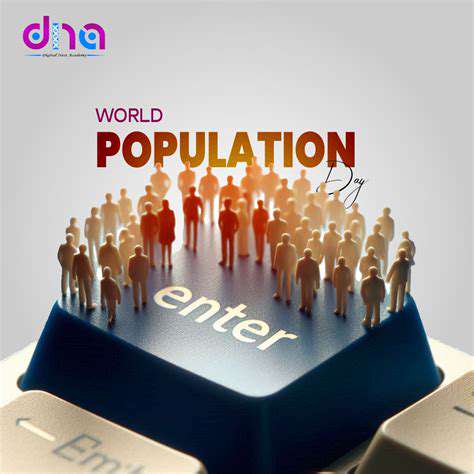
The Foundation of Data Protection
Data subject rights are fundamental to ensuring individuals have control over their personal information in the digital age. These rights are not simply legal niceties, but rather crucial components of a democratic and equitable information society. Respecting these rights is vital for fostering trust and confidence in data handling practices.
Understanding the importance of data subject rights is crucial for organizations and individuals alike. They represent a cornerstone of data privacy, providing individuals with the power to reclaim control over their personal information.
Access to Information
The right of access allows individuals to request and obtain copies of the personal data held about them. This empowers individuals to understand how their data is being used, potentially identify inaccuracies, and ensure the data's accuracy and completeness.
This right is essential for verifying the data's legitimacy and identifying potential misuse or breaches. By accessing their data, individuals can ensure that it is being handled in a responsible manner.
Rectification of Inaccurate Data
Individuals have the right to rectify inaccurate personal data. This right is vital because inaccurate information can lead to incorrect decisions and judgments, impacting individuals' lives in numerous ways. Having the power to correct errors is essential for maintaining the integrity of personal data.
The ability to correct inaccuracies is a safeguard against the perpetuation of false or misleading information. This ensures that the data used to make decisions about individuals is as accurate as possible.
Erasure (Right to be Forgotten)
The right to be forgotten is a powerful tool that allows individuals to request the deletion of their personal data under specific circumstances. This is particularly important in scenarios where the data is no longer necessary for the purpose for which it was collected. It also comes into play when the data has been processed unlawfully.
This right ensures that personal data is not retained indefinitely, preventing potential misuse or harm in the future. By exercising this right, individuals can reclaim control over their past and protect their privacy.
Restriction of Processing
The right to restrict processing allows individuals to temporarily limit how their data is used. This is valuable in situations where the individual disputes the accuracy of the data or challenges the lawfulness of its processing. Restricting processing temporarily safeguards their rights during the resolution of the dispute.
This right provides a crucial avenue for individuals to protect their interests during potential legal challenges. It allows for a temporary pause in the processing of their data, ensuring that decisions are not made based on potentially inaccurate information.
Data Portability
The right to data portability enables individuals to obtain and reuse their personal data in a structured, commonly used, and machine-readable format. This right allows individuals to transfer their data between different service providers. This is essential for maintaining control over their information in a rapidly evolving digital landscape.
This facilitates a smoother transition of data between different systems, empowering individuals to manage their personal information more effectively. It's a crucial aspect of data ownership and control.
Objecting to Processing
The right to object to processing allows individuals to oppose the processing of their personal data based on legitimate grounds. This applies to situations where the processing is carried out for direct marketing purposes or for scientific or historical research. It's a fundamental right to protect individuals from unwanted or unnecessary data collection and use.
This right empowers individuals to resist practices that may violate their privacy expectations. It allows individuals to maintain a degree of autonomy over how their data is collected and used, preventing potential harm.
Read more about The Future of Data Privacy Regulations
Hot Recommendations
- Personalizing Email Content with User Behavior
- Geofencing for Event Attendance Tracking
- Reputation Management on Social Media
- UGC Beyond Photos: Videos, Testimonials, and More
- The Future of Data Privacy Regulations
- Accelerated Mobile Pages (AMP) Benefits and Implementation
- The Future of CRM: AI and Voice Integration
- Google Ads Smart Bidding Strategies: Maximize Value
- Common A/B Testing Pitfalls to Avoid
- Local SEO Strategies for Small Businesses
